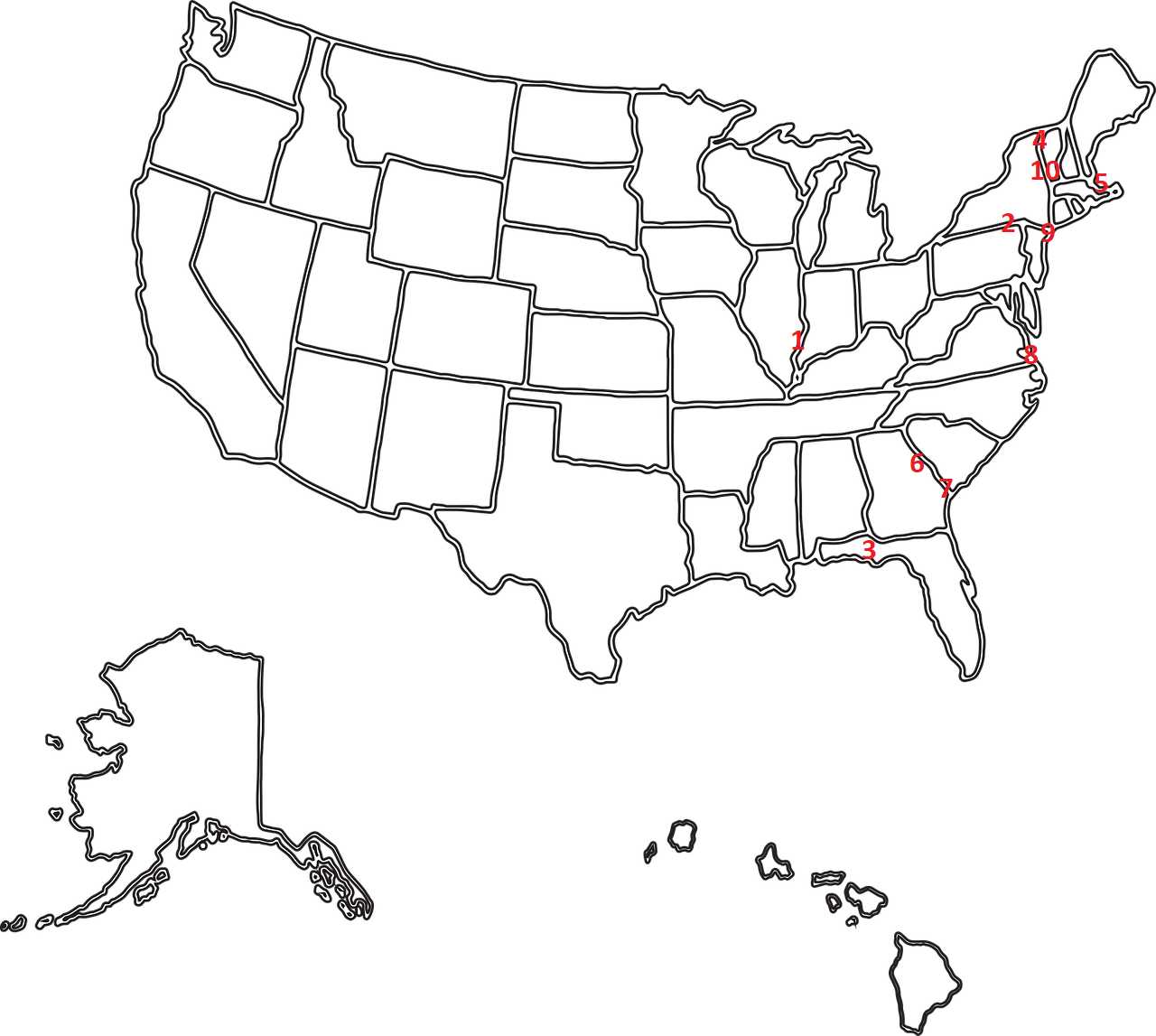
Where in the American Revolution? Quiz
Many famous events occurred during the American Revolution. But where in the United States did they happen? Match the event to the number on the map, and have fun!
A label quiz
by lordprescott.
Estimated time: 3 mins.
